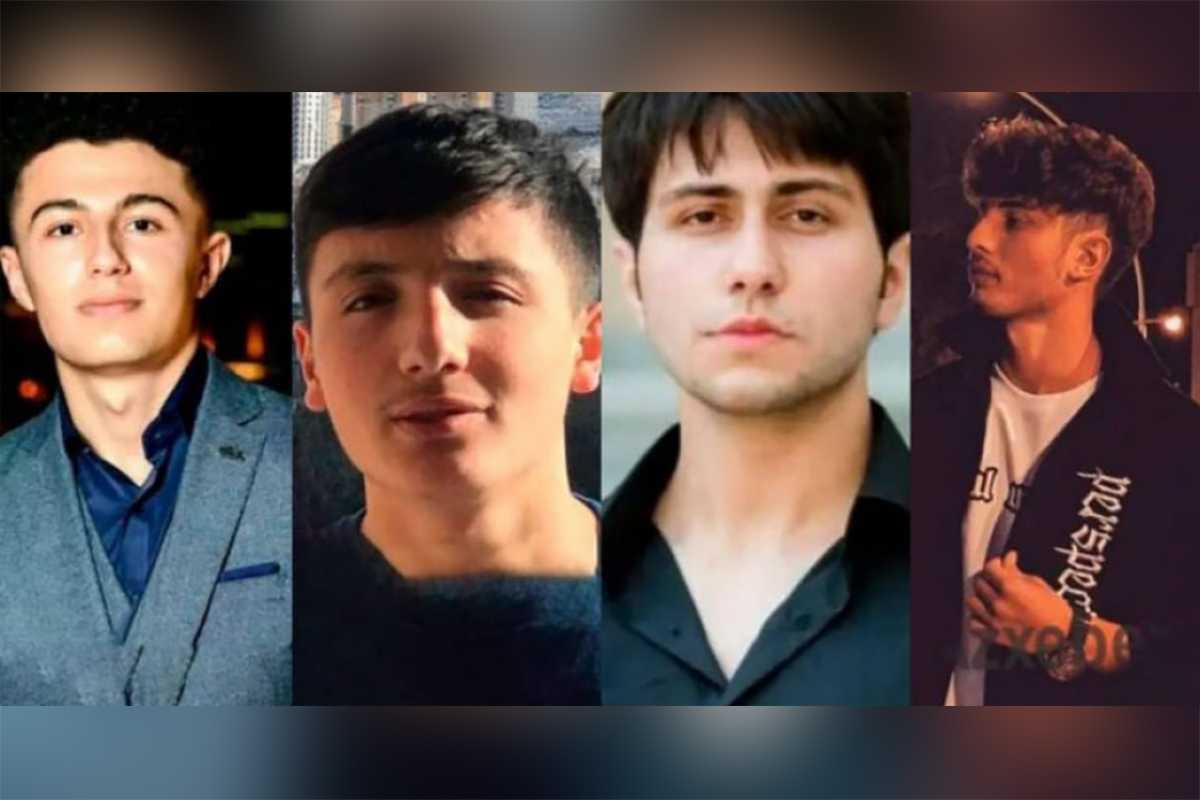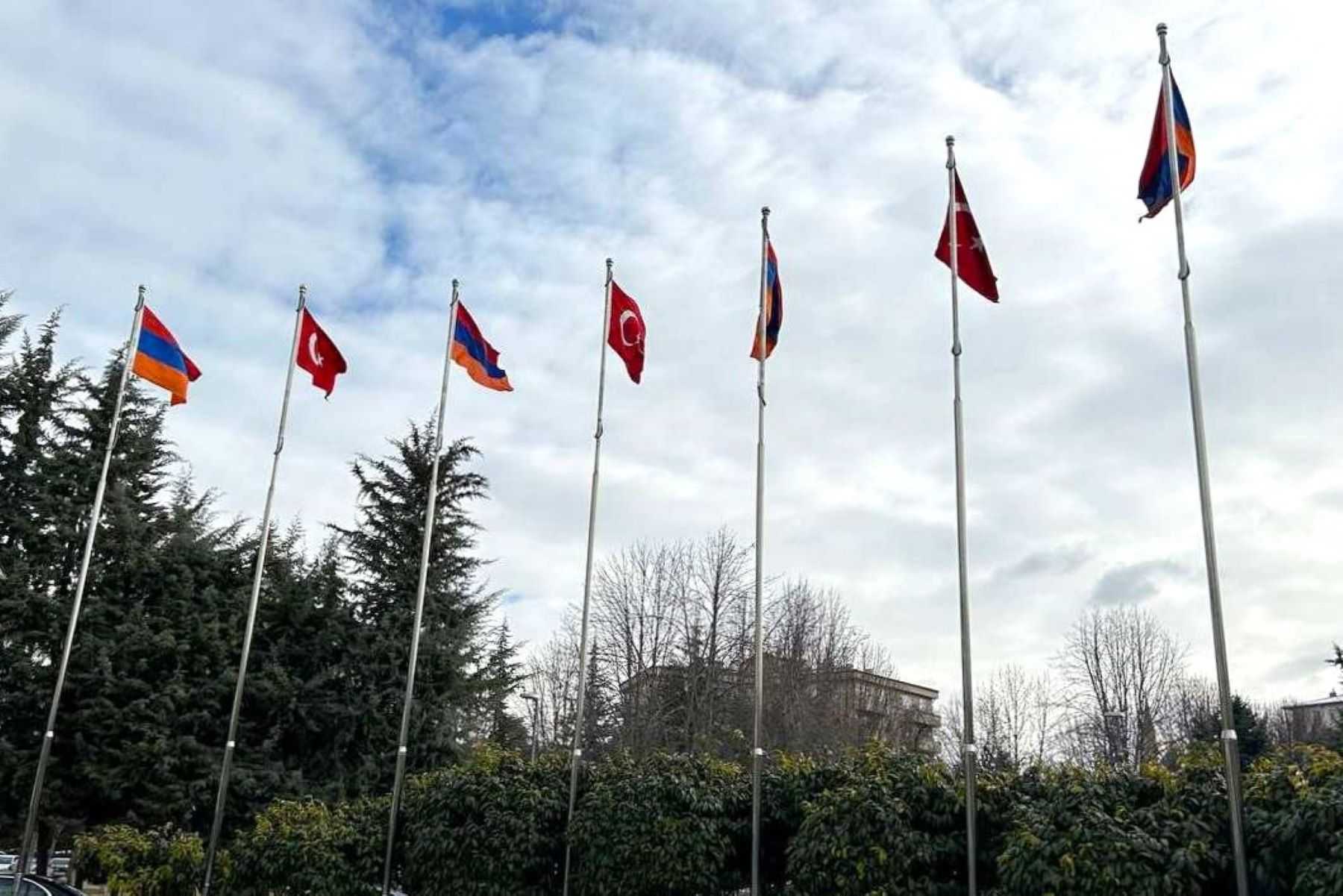
The South Caucasus has offered messages of support and offers of assistance after a deadly earthquake hit Turkey and Syria on Monday. But despite parts of both countries being devastated by the quake, only Armenia offered aid to Syria.
The 7.8 magnitude earthquake hit at around 04:17 on 6 February and was followed by aftershocks that devastated south-eastern Turkey and northern Syria. Official death tolls from Turkey and Syria number over 5,000 so far, with tens of thousands more wounded or stuck under the rubble.
Few European and South Caucasian states have mentioned the already wartorn Syria in their statements of support to the victims of the earthquake.
Both Syria and Turkey are also home to sizeable Caucasian communities; millions of ethnic North Caucasians, Georgians, and Armenians live in settlements spread across Turkey, while over 100,000 North Caucasians and Armenians reside in Syria.
Rescuers and aid sent to Turkey
Azerbaijan was among the first countries to offer aid to Turkey, with President Ilham Aliyev pledging to send 420 emergency workers to Turkey.
‘The rescue forces of the ministry [of Emergency Situations] have already started search and rescue operations in the cities of Adana and Kahramanmaraş,’ read an official statement on Monday.
Georgia sent 60 firefighters and emergency workers, as well as rescue equipment, to Turkey as per Prime Minister Irakli Gharibashvili’s instructions.
Baku later sent a second rescue team to Turkey consisting of 41 rescuers, including 34 military and civilian medical personnel. They also sent a mobile field hospital, which included tents, bedding, and heaters.
The authorities in Abkhazia issued separate statements of condolences to Syria and Turkey.
As news broke out about the earthquake, Armenia’s Prime Minister Nikol Pashinyan offered his condolences to victims in Turkey and Syria on Twitter.
Saddened by the news of the devastating earthquake in #Türkiye & #Syria that resulted in the loss of so many lives. Our deepest condolences to the families of the victims and we wish a speedy recovery to the injured. Armenia is ready to provide assistance.
— Nikol Pashinyan (@NikolPashinyan) February 6, 2023
On 7 February, Armenia’s Foreign Ministry announced it was sending search and rescue squads to Turkey and Syria.
Nagorno-Karabakh’s State Minister Ruben Vardanyan echoed Pashinyan’s statement.
‘Unfortunately, we know all too well what human tragedies can be caused by a devastating earthquake. Our people know this pain only too well’, Vardanyan wrote on Facebook, referring to the devastating earthquake that hit northern Armenia in 1988 and killed about 25,000.
[Read more: Armenia’s devastating earthquake 30 years on]
Syria ‘left behind’
Neither official statements issued by Azerbaijan nor Georgia mentioned the effects of the earthquake in northern Syria, where 812 people are confirmed dead.
Georgia broke off diplomatic relations with Syria in 2018 after the latter formally recognised Abkhazia and South Ossetia as independent, while Armenia and Syria have maintained friendly relations with each other, partly due to the presence of a large Armenian community in Syria.
Around 60,000 Syrian Armenians reside in the northern Syrian city of Aleppo — one of the areas worst hit by the earthquake.
According to social media reports, Syrian-Armenians in Armenia have sent around 20 tonnes of humanitarian aid to Syria.
The EU Commission’s spokesperson for humanitarian aid and crisis management, Balasz Ujvar, stated that the European Union would only be able to offer aid to Syria once they ‘receive a formal request from the Syrian authorities’.
Caucasian casualties
At least nine ethnic Armenians were killed as a result of the earthquakes; four in Syria and five in Turkey.
Additionally, four Azerbaijani students were reported to have been rescued and hospitalised in Malatya in the aftermath.
No casualties were recorded among Georgian nationals in Turkey, with the Georgian Ambassador, Giorgi Janjghava, stating that they had accounted for all missing Georgian citizens that they were aware of. He said the embassy was attempting to reach out to as many Georgian citizens in Turkey as possible.
Janjghava urged Georgian nationals in Turkey to return to Georgia if their home had been ‘destroyed [or] if they lost their job’.
Kavkaz Vakfi, a North Caucasian diaspora organisation, claimed that more than 50 Circassians had died in Turkey, while 40 different Circassian settlements were affected by the earthquake.
Only one person of Abkhaz origin is confirmed to have died in Turkey.
KAFFED, the largest of Turkey’s North Caucasian diaspora organisations, announced the formation of volunteer rescue teams in Kayseri and Ankara.
Armenia, Azerbaijan, and Georgia have all established hotlines for citizens affected by the earthquake.
Armenian citizens in Turkey and Syria can contact Foreign Ministry’s emergency hotline at:
- Phone: +374 60 620 111
- WhatsApp and Viber: +374 55 620 111.
- Email: [email protected].
Citizens of Azerbaijan in Turkey can contact:
- +994125969449 (09:00–18:00).
- +994503422491 (24 hours).
- Email [email protected].
Georgian citizens in Turkey can contact the hotlines below:
- Georgian Embassy in Ankara: +905336903040; +905392208280.
- General Consulate in Istanbul: +905418184400.
- General Consulate in Trabzon: +905413262226.
For ease of reading, we choose not to use qualifiers such as ‘de facto’, ‘unrecognised’, or ‘partially recognised’ when discussing institutions or political positions within Abkhazia, Nagorno-Karabakh, and South Ossetia. This does not imply a position on their status.







